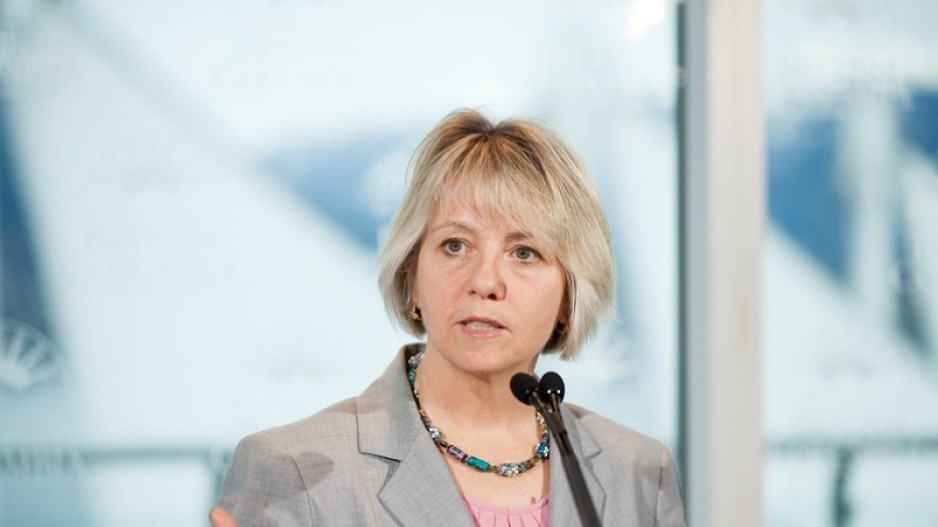The B.C. government on June 4 released updated data that showed COVID-19 has been a more devastating illness for men than it has been women.
While women represented about 52% of the 2,562 COVID-19 cases identified in B.C. on May 29, men represented almost 60% of the people who were in hospital and more than 63.3% of people who had been admitted to intensive care units. Almost 61% of the people who had died of COVID-19 in B.C. by May 29 were men.
“We are seeing in B.C. a phenomenon that is being seen in many countries around the world, that even though women are just as likely or even more likely to develop COVID-19, men are more likely to have more severe illness,” said B.C. provincial health officer Bonnie Henry.
She said, without citing any specific data, that the situation may be different in Ontario and Quebec, where the death rate for women is higher, because those provinces have had a higher proportion of their cases in long-term care homes, and women are more numerous in those homes.
Age is the biggest determinant of how severe someone’s bout with COVID-19 will be.
“We have had no deaths in anybody under the age of 40, and we’ve had nobody in the ICU under the age of 20,” Henry said.
More than half of the cases, or 51.6%, have been in people aged 30 through 60. Those people, however, represented less than half of 1% of the deaths.
There were 128 cases of people who were in their 90s contracting COVID-19, or about 5% of the total number of cases, as of May 29.
That group of infected people had the highest mortality rate, as 33.6% of those people, or 43, died.
People in their 80s had a similar death rate, at slightly more than 33%, as 70 of the 212 people who contracted COVID-19 and were in their 80s died from the disease.
Children and teens were the most under-represented group, given that only about 1% of the cases were people younger than 10, and 2% of the cases were people aged 11 through 19.
Only one person aged younger than 20 was hospitalized, and that person did not have to go to an intensive care unit.
Henry also spent time on June 4 discussing the sources of infection. The first case of the disease was related to the outbreak in Wuhan, followed closely by cases related to the outbreak in Iran. There then came a wave of infections related to the strain that was common in Washington State. Of late, most cases are what Henry called “European-like and Eastern Canadian.”
That strain really started to take off after a dental conference that sparked a large outbreak, Henry said.
“We had at least three slightly different strains, all of them related to Italy and Germany,” she said. “That really let us know that travel-related cases were really coming in and spreading in our community.
Henry also revealed the newest data related to COVID-19.
There were five new cases of COVID-19 in the past 24 hours, and a total of four cases that Henry called "epidemiologically linked," or presumed, cases that the government had been tracking since May 19 but had not previously added the total number of cases. All four of the presumed cases have recovered, and the total number of COVID-19 cases in B.C. is now 2,632.
There are 26 people who are now in hospital, including six in intensive care units. No one has died from the disease in the past 24 hours.
More than 86% of people, or 2,265 individuals, have recovered from the disease that has caused a global pandemic.
The breakdown of all COVID-19 infections by health region is:
• 909 in Vancouver Coastal Health;
• 1,334 in Fraser Health;
• 130 in Island Health;
• 195 in Interior Health; and
• 64 in Northern Health.
One new community outbreak has been detected in the past 24 hours, at Burnaby's Beresford Warming Centre – a place that provides overnight shelter for vulnerable people. Three new cases are related to that facility.
No new outbreaks have taken place at seniors' homes. The six active outbreaks at long-term care facilities are at:
•North Vancouver's Berkley Care Centre;
•Vancouver's South Granville Park Lodge;
•Burnaby's New Vista Care Home;
•Port Coquitlam's Nicola Lodge;
•Langley's Langley Lodge; and
•Abbotsford's Valhaven Home.
Henry said 340 residents and 217 staff have been infected by COVID-19 in dozens of seniors' care facilities since the pandemic took hold in the province.



